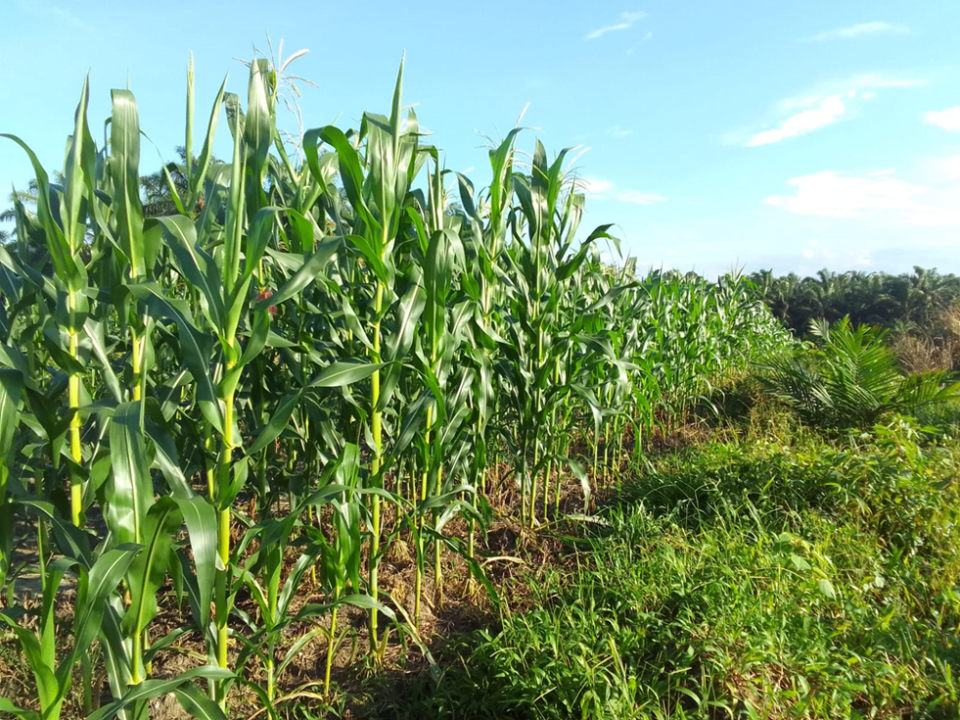
Growing for Good: How Cash Crops are Empowering Local Communities and Combating Climate Change in Indonesia
Cash crops have long been crucial to the economic and way of life of the surrounding communities in Indonesia. Cash crops are crops farmed for their commercial value rather than for sustenance. These crops can help communities diversify their economic streams and serve as a significant source of income. Cash crops can also be used as an alternative livelihood approach for communities struggling with issues like food security and climate adaption.
The ability of cash crops to generate revenue for communities throughout the year is one of its key advantages. Depending on the type of crop, income crops can be harvested more frequently than traditional subsistence crops, which are typically harvested just once or twice a year. As a result, communities might have an income that is steadier and not reliant on a single harvest. In addition, cash crops can help communities diversify their income streams, reducing their vulnerability to market fluctuations and climate-related disasters. For example, if a community relies solely on rice farming, and a drought or flood affects their crop, they may face economic hardship. But if they also grow cash crops such as coffee or cocoa, they can still have a source of income while they wait for their rice crop to recover.
Cultivating change
Cash crops can also be an important part of climate adaptation strategies. As the effects of climate change become more apparent, many communities are facing more frequent and severe weather events such as droughts, floods and storms. Cash crops can help communities adapt to these challenges by providing a more resilient source of income. For example, cash crops such as coffee and cocoa are grown under tree canopies, which help conserve soil moisture and reduce erosion. This makes them more resilient to droughts and floods, as they are less likely to suffer from soil erosion or water stress. These crops can also help to sequester carbon, which can mitigate the effects of climate change.
Cash crops can also contribute to food security in Indonesia. While Indonesia is a major exporter of cash crops such as coffee, cocoa and palm oil, these crops can also be locally consumed. In fact, many local communities in Indonesia rely on these crops for their daily food needs. For example, palm oil is widely used in Indonesian cooking, while coffee and cocoa are consumed as beverages. By growing cash crops, communities can also reduce their dependence on imported food, which can be expensive and subject to market fluctuations. This can help improve food security in the country, particularly in rural areas where access to food can be limited.
Climate discussion inclusion
Nevertheless, there are challenges associated with cash crop production in Indonesia. One of the most significant is the potential for environmental degradation. In some areas, the expansion of cash crop plantations has led to deforestation, soil erosion and water pollution. This can have a negative impact on local ecosystems and the livelihoods of communities that depend on these ecosystems for their survival.
To address these challenges, it is essential to promote sustainable cash crop production practices. This can include the use of agroforestry techniques, which integrate cash crops with trees and other vegetation to promote soil conservation and biodiversity. It can also involve promoting organic farming methods that reduce the use of chemical fertilizers and pesticides, which can harm the environment and human health.
In conclusion, cash crops can play an important role in the livelihoods of local communities in Indonesia by providing a stable source of income, diversifying income streams and contributing to food security. Cash crops can serve as an alternative livelihood strategy for communities facing climate adaptation and food security challenges as the ground intervention will surely cover both climate adaptation and food security metrics. It is also imperative that cash crops and sustainable agricultural practices are given due consideration in all global and local climate discussions and developments. The environmental impacts of these practices cannot be ignored and their contribution to sustainable development should be recognized. By implementing these practices, we can achieve food security, reduce greenhouse gas emissions and promote economic growth in communities around the world.
Going forward, it is imperative to change our perspectives of a single intervention that might provide global and cross-sectoral solutions.
Regenerating Soils and Forests with and for people.
1yWell written Barakalla Robyn